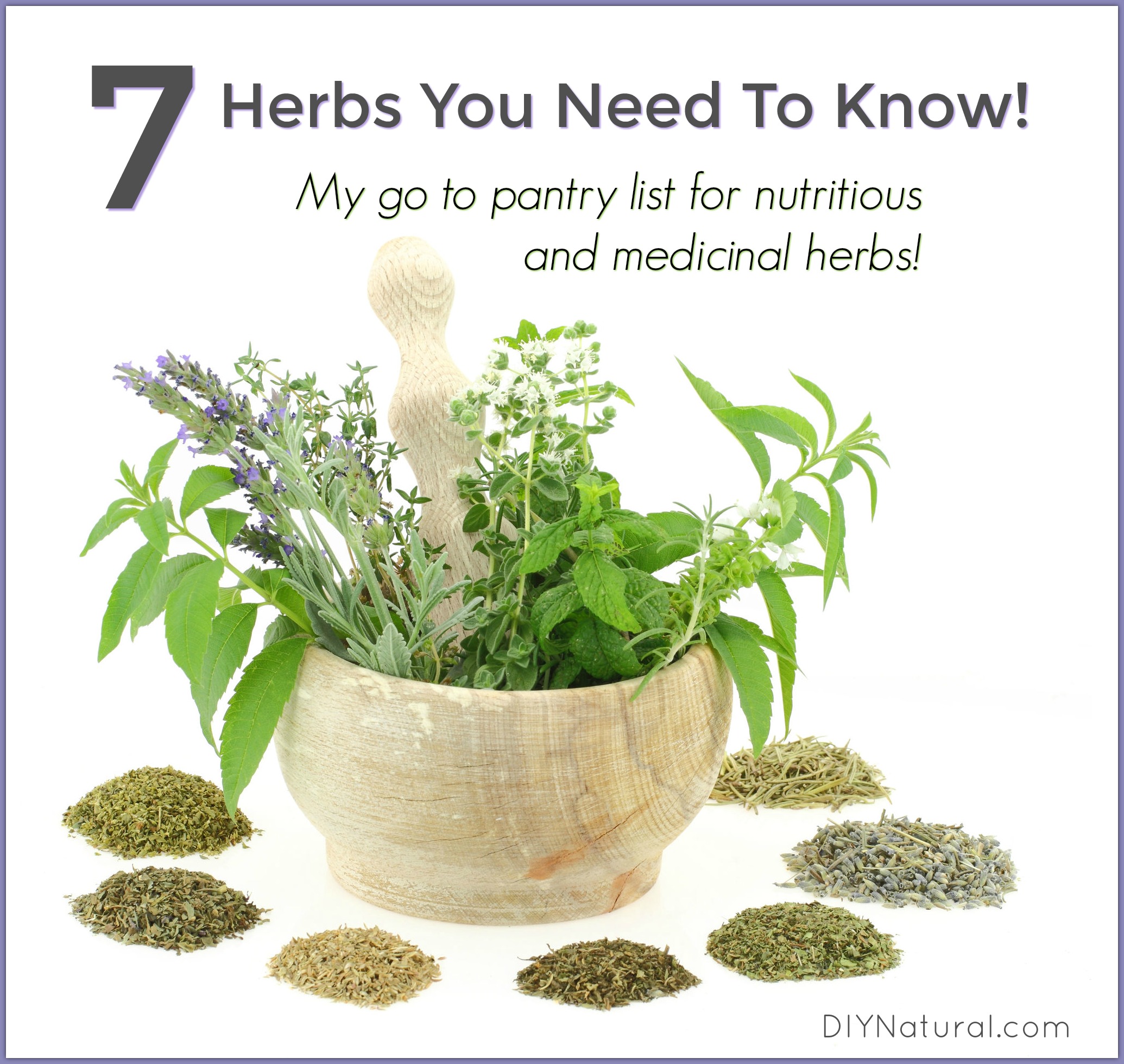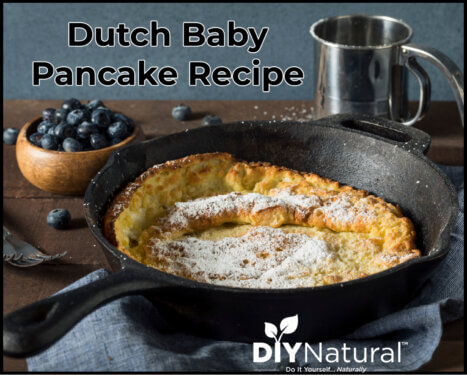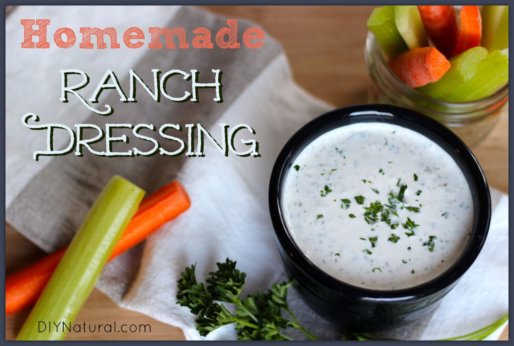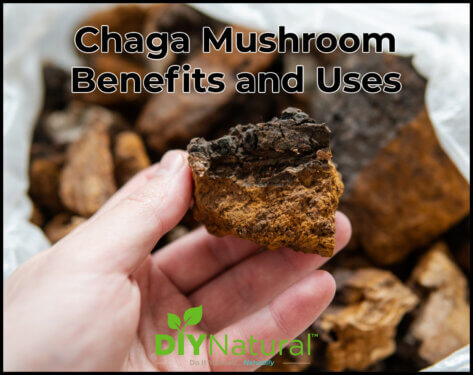
List of Herbs: Nutritious, Medicinal Herbs
What is it about herbs that has drawn humanity to use them as medicine for centuries? I suppose it’s all in who you ask. Some seem to think that those who use these plants for health are experiencing some sort of mental disorder or placebo. Some believe that there are powerful chemicals within plants that make them truly dangerous for the average person’s use.
The chemicals found within many plants are complex in nature. Pharmaceutical companies isolate and amplify these chemicals in labs to create some of our most important pharmaceuticals, which also have some of the worst side effects. The vast majority of the plants we have available to us for health don’t depend on their more complex chemicals. Instead, they simply provide a rich source of nutrition.
Can You Get Nutrition From Herbs?
Alteration by human preference and lab interference have brought the nutritional value of our food into question. Because of this, the plants we call “weeds” or herbs are often a simple and superior way to support our diets.
The laundry list of ailments that these nutritious plants seem to treat reads like a too-good-to-be-true advertisement for the green world. The truth is that these plants aren’t miracle workers with complex chemicals, nope – they’re just giving us the nutrition our bodies need to function normally. Here is a list of herbs I keep in my cupboard at all times simply for their high nutrition.
7 of The Most Nutritious Herbs
Alfalfa (Medicago sativa)
Pick and dry the leaves and stem for use in teas. I can’t imagine mixing up a pregnancy tea or vitamin formula without it! It is high in niacin, riboflavin, protein, and vitamins A and C. (Find organic alfalfa leaf here.)
Marshmallow (Althaea officinalis)
We use every part of the marshmallow plant for its high mucilaginous content in teas and pills, most notably. The plant is supportive in the digestive, respiratory, and urinary tracts. The root is exceptionally high in iron, magnesium, and selenium. It is also high in chromium and Vitamin C. (Find marshmallow root, marshmallow leaf, marshmallow root powder, and marshmallow extract.)
Bilberry (Vaccinium myrtillus)
Bilberry is a fruit that is high in antioxidants much like the blueberry. You’ll find it dried and ready for inclusion in teas and tinctures. This fruit is used quite often in formulas for eye health. It is very high in iron, manganese, phosphorus, and zinc. It is also a great source of magnesium, potassium, selenium, thiamine, and vitamins A and C. (Find the dried fruit here.)
Burdock (Arctium lappa)
There are uses for many parts of the burdock plant, but the most used is the root. It is great for ailments of the liver. The root is very high in chromium, iron, magnesium, silicon, and thiamine. It is also a great source for cobalt, phosphorus, potassium, Vitamin A, and zinc. (Find burdock root here.)
Fennel (Foeniculum vulgare)
Some varieties of fennel have been selected for the bulb they grow at their base, but medicinally we use the seed of the F. vulgare variety. This highly aromatic seed is important for digestive ailments. It is also highly nutritive and packed with calcium, magnesium, phosphorus, selenium, and thiamine. (Find organic fennel here.)
Horseradish (Armoracia rusticana)
This root is dug in early spring or late fall and makes its appearance at the dinner table as a condiment. In truth, it might be one of the most nutritious things on the table! It is crammed with calcium, chromium, magnesium, manganese, niacin, phosphorus, potassium, protein, riboflavin, zinc and vitamins A and C. (Find horseradish root powder here.)
Nettle (Urtica dioica)
The leaves and stems are used most in teas and at the table, but the root is also very useful. Nettle is useful for the urinary tract, reproductive, nervous, circulatory, and digestive systems. It is a superstar in the medicine chest because it is high in calcium, chromium, cobalt, magnesium, manganese, phosphorus, protein, riboflavin, selenium, silicon, thiamine, zinc and vitamins A and C. (Find dried nettle leaf or nettle leaf capsules.)
No matter where you stand on the use of medicinal herbs, I think we can agree that a little extra nutrition is never a bad thing!
*******




I couldn’t agree more, there’s nothing wrong with more nutrition. The more the better. Herbal medication and supplementation is definitely getting more popular. Thanks
I need cheapest formula of washing powder
I need cheapest formula of washing powder. Thanks
Small correction: there is no Vitamin in plants. What is often called Vitamin A is Beta-Carotene, a precursor to vitamin A, which is two A molecules joined. The liver can transform beta-carotene into vA, but this conversion depends on several factors and the health of the liver. At best, it is something like 10 beta-carotenes to 1 vA. In many people with compromised health, it doesn’t happen at all.
Agree, I apologize for the oversimplification. It was done for the ease of reading for the user.
The properties of these plants is awesome! Can all of them be combined together in fire cider? And if I want to make a half gallon, what quantities would you recommend? I have terrible IBS and am hoping fire cider will really help my digestion issues!!